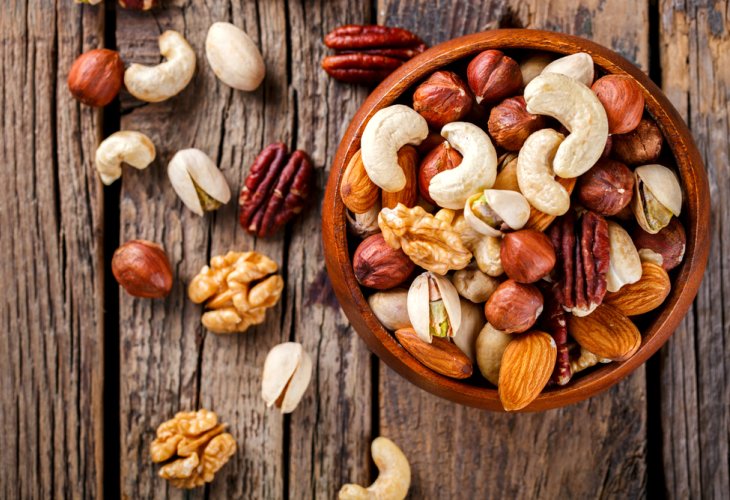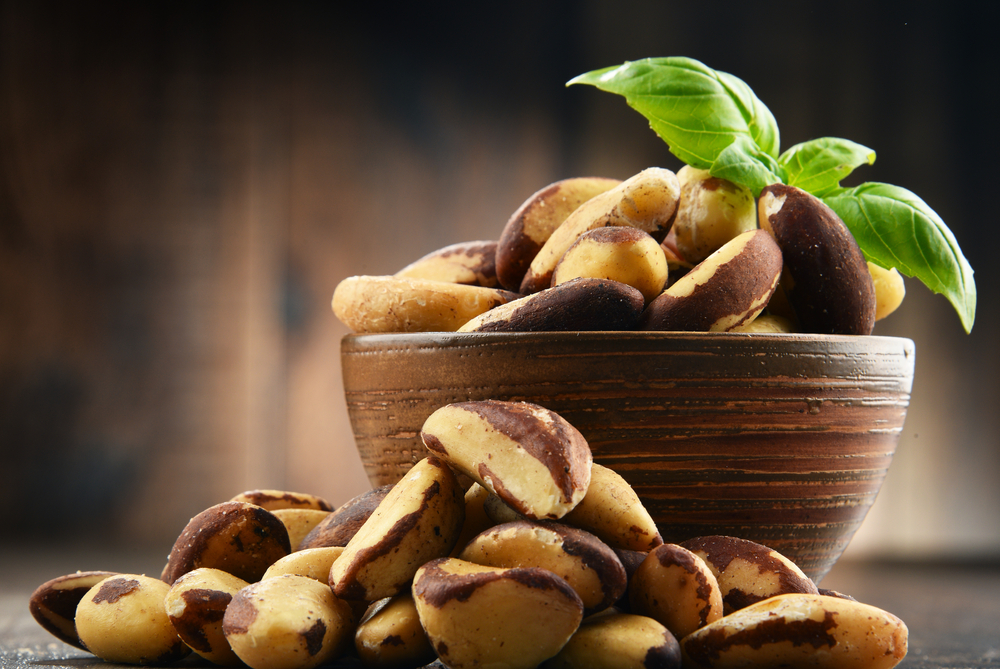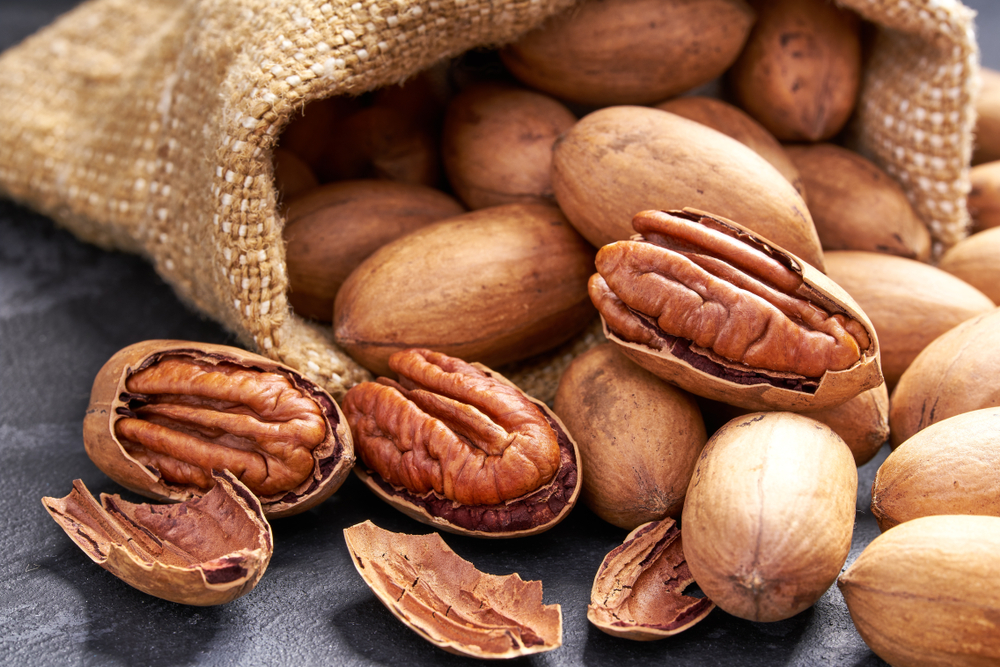Nutcracker: The Importance of Nuts in Our Diet
Tu Bishvat - the festival of nuts and almonds. They are a nutritious source of plant-based fat and protein, in addition to their fiber content. So, which type is the best?
 (Photo: shutterstock)
(Photo: shutterstock)Nuts and almonds are a nutritious source of plant-based fat and protein, in addition to their fiber content. So, which type is the best?
Weight Maintenance
Studies show that incorporating nuts into the daily menu with controlled calorie intake can help maintain and reduce weight. Nuts are rich in dietary fiber, fat, and protein, which help increase the feeling of fullness and better control of food intake. It has been found that adding a handful of nuts to the daily menu helps reduce feelings of "deprivation" that many experience during the weight loss process.
Digestive System Activity
Studies show that incorporating nuts into the daily menu helps regulate digestive system activity.
Nuts are rich in both soluble and insoluble dietary fiber. Insoluble fibers increase stool volume, allowing faster movement through the intestines, accelerating digestion, and helping regulate it. Soluble fibers provide a good nutritional base for the growth of "good bacteria" and help reduce levels of "bad" cholesterol (LDL) in the blood.
So Which Type of Nut is Best?
Almonds: Rich in monounsaturated fatty acids, which help raise "good" (HDL) cholesterol levels in the body, aiding the removal of LDL from the blood, thus reducing the risk of heart disease. Almonds are also rich in calcium and dietary fiber, up to twice as much as other nuts. Vitamin E, a strong antioxidant, is present in good amounts (575 calories per 100 grams).
Walnuts: Very rich in omega-3 fatty acids, contributing to heart health, combating inflammation, important for fetal brain development, fighting depression, and more. This group of essential fatty acids cannot be produced by the body and must be obtained from food. Eating 14 walnut halves daily as part of a balanced and controlled diet provides the daily omega-3 amount according to the recommendations published in 2002 by the The National Academies’ Institute of Medicine (650 calories).
Brazil Nuts: Contain a good amount of unsaturated fatty acids that help raise good cholesterol levels and reduce heart disease risk. They are the richest natural source of selenium, an antioxidant mineral that fights "free radicals" in the body, thus known as an anti-aging agent and helps reduce the risk of cancers like lung and prostate. It is important to remember that each Brazil nut contains 80-100 mcg of selenium, and the upper consumption limit is up to 400 mcg per day. Beyond that, levels can become toxic. Therefore, it is not recommended to consume more than 5 Brazil nuts daily (655 calories).
 (Photo: shutterstock)
(Photo: shutterstock)
Peanuts: Rich in protein, potassium, B vitamins, and iron. They are technically legumes, not nuts, but nutritionally similar to nuts. 28 grams of peanuts provide 10% of the recommended daily allowance of folic acid, important for reducing the risk of fetal malformations and cardiovascular diseases. Peanuts are also a good source of niacin (vitamin B3), helping reduce LDL levels and increase HDL levels (580 calories).
Cashews: Rich in protein and various minerals like zinc and iron. They have twice the iron content of most nuts. Iron is a mineral important for red blood cell production, anemia prevention, and functions as a vital component in many body enzymes. Zinc is important for hair, skin, nail, immune system, and fertility health (600 calories).
Pecans: Rich in vitamin A and zinc, aiding in maintaining healthy skin, nails, hair, and playing a critical role in the immune system. They are also high in dietary fiber (730 calories).
 (Photo: shutterstock)
(Photo: shutterstock)
Hazelnuts: Contain various minerals like potassium, manganese, and iron. They are rich in vitamin C, important for wound healing, tissue health, and enhances iron absorption from food in the intestines. In addition, they are rich in vitamin E. Vitamin E and vitamin C work together against free radicals. These nuts are also rich in folic acid (630 calories).
Macadamia Nuts: Rich in dietary fiber and monounsaturated fatty acids. A good source of iron, calcium, phosphorus, and vitamin 1B (thiamine) (730 calories).
Pistachios: Rich in vitamin A, dietary fiber, and protein, contributing to a feeling of fullness. Also high in potassium and contains B vitamins (570 calories).
Sunflower Seeds (Black Seeds): Rich in essential amino acids, recommended for pregnant and nursing women, contributing to milk production, and contain a high amount of vitamin E(540 calories).
Pumpkin Seeds (White Seeds): Rich in omega-3 fatty acids, preventing arterial calcification, lowering blood pressure, and preventing cardiac disorders (580 calories).
In conclusion, nuts are low in sodium, and salting them increases sodium levels, posing a risk of high blood pressure. Also, roasting any type of almonds and nuts reduces their quality; peanuts, cashews, seeds, and pistachios should be dry roasted. Therefore, buy fresh nuts from known places to prevent mold and store them in a cool, dry place. Additionally, for diabetics, it's important to eat in measured amounts, after checking with a continuous glucose monitor without pricks and consulting a clinical dietitian, which is also available through online services.
Adina Bakhar is a diabetic and ketogenic nutrition dietitian at the DMC Center for Diabetes Care.

